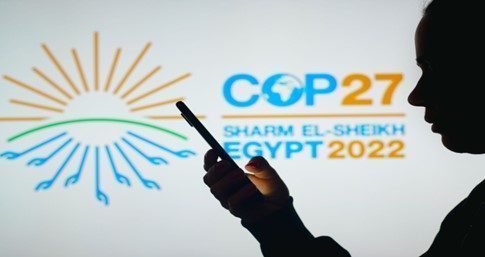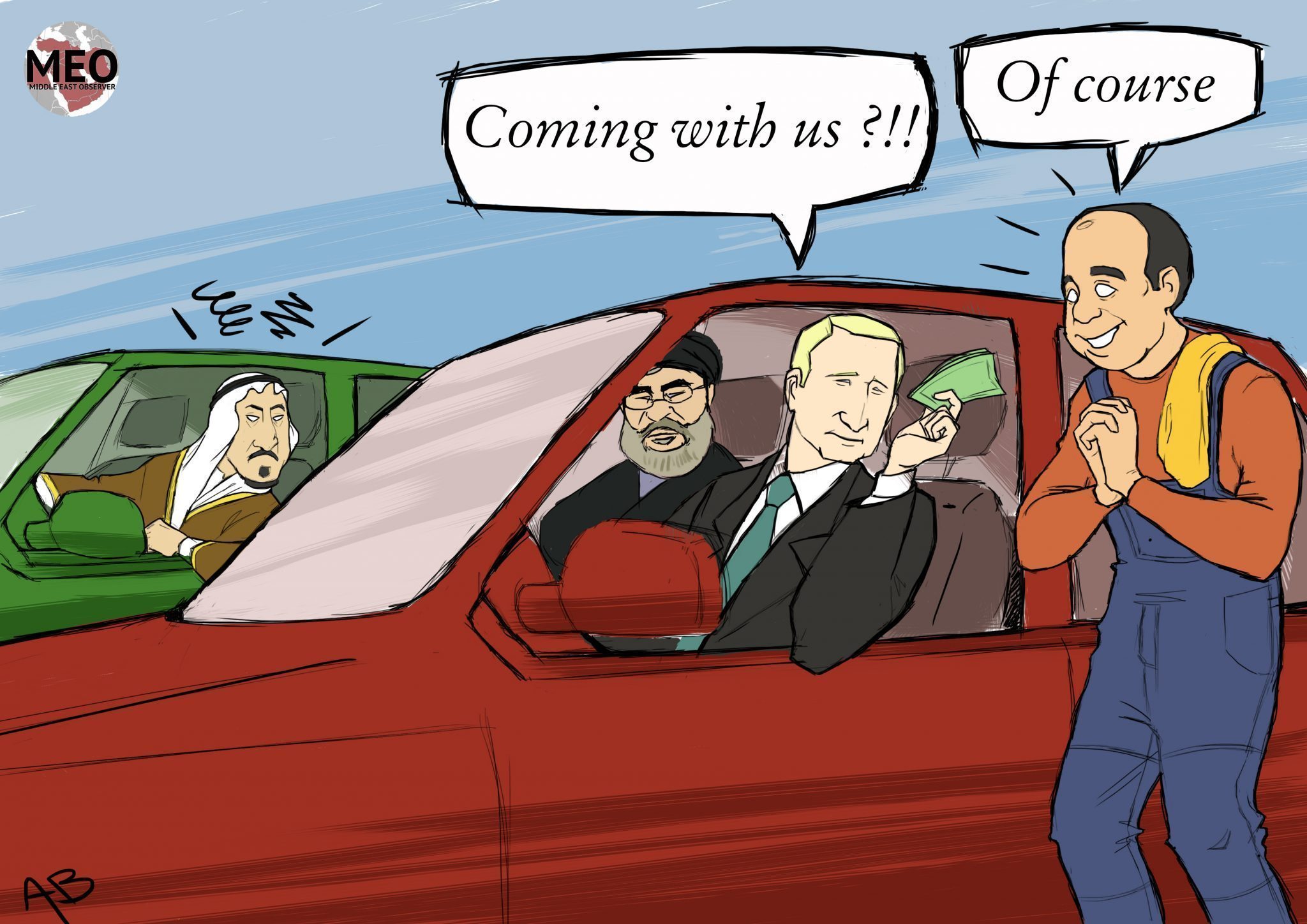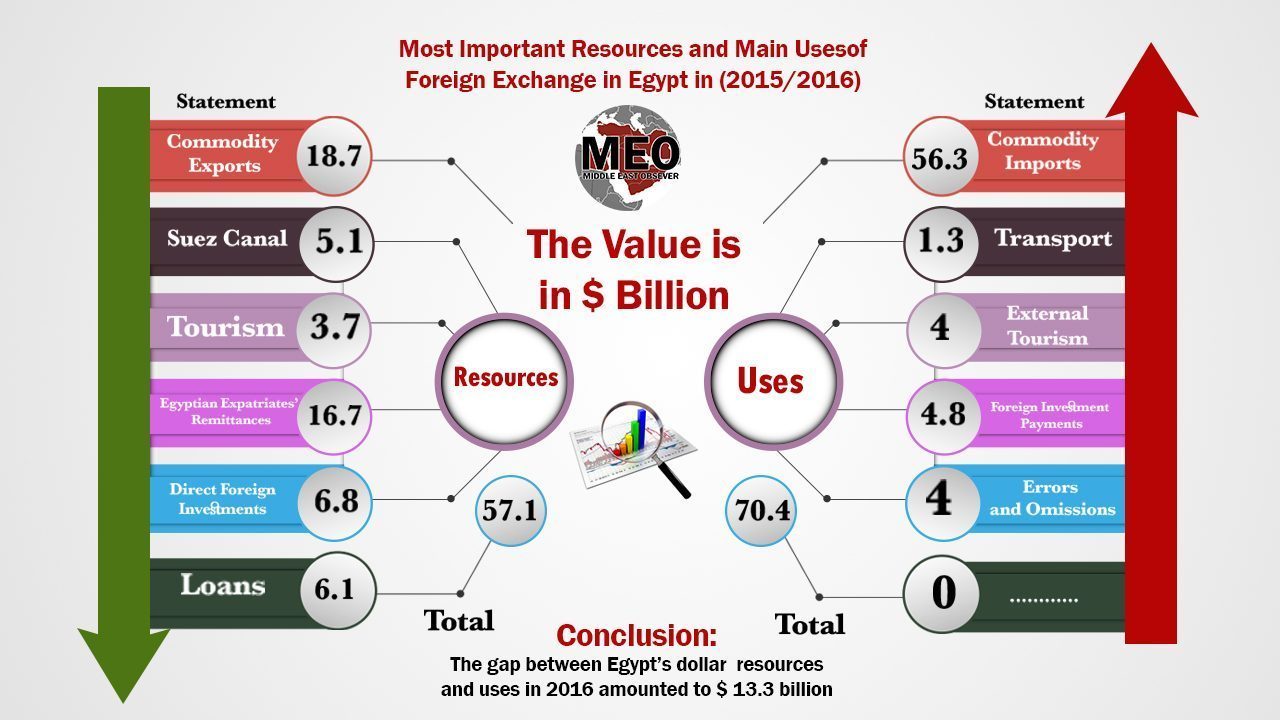
As COP27 in Sharm El-Sheikh comes to an end, 4 UN rapporteurs have condemned authorities’ “intimidation, harassment, and surveillance of climate activists and civil society.”
At the time when the UN climate conference, COP27, held in Egypt’s Sharm El-Sheikh draws to a close, four UN special rapporteurs on Friday condemned the Egyptian authorities’ “intimidation, harassment, and surveillance” of climate activists and civil society during the conference.”
“We are deeply concerned by reported acts of harassment and intimidation by Egyptian officials, infringing the rights of Egyptian and non-Egyptian human rights and environmental defenders at COP27, including their rights to freedom of peaceful assembly, expression, and effective participation,” the experts said.
Despite the group’s warnings last month, authorities have nevertheless prevented rights defenders from entering the country, intimidated activists, and spied on civil society actors in the conference venue.
“We are concerned that these actions by Egyptian authorities have a chilling effect, impacting wide segments of civil society participating in COP27 as many groups have expressed concern about the need to self-censor to ensure their safety and security,” the rapporteurs stated.
The experts also voiced concern that “once the spotlight shifts from Egypt at the conclusion of COP27, Egyptian human rights defenders could be targeted and risk reprisals for their engagement during the conference.”
COP27 was due to end today, but Foreign Minister Sameh Shoukry announced a one-day extension to try to overcome stalled negotiations. Apart from its crackdown on activism, Egypt’s government has also come under increasing fire for its mismanagement of the climate negotiations.
“We are concerned that these actions by Egyptian authorities have a chilling effect, impacting wide segments of civil society participating in COP27 as many groups have expressed concern about the need to self-censor to ensure their safety and security,” they said.
The experts received reports of activists being subject to intrusive questioning at the airport when entering Egypt, raising concerns that information collected on the activities of civil society organisations during COP27 could be misused.
They also expressed concern that once the spotlight shifts from Egypt at the conclusion of COP27, Egyptian human rights defenders could be targeted and risk reprisals for their engagement during the Conference.
“We call on Egypt to immediately end harassment and intimidation, to ensure the rights to participation, freedom of expression and of peaceful assembly at COP27, and abstain from reprisals against civil society, human rights defenders and indigenous peoples representatives who attended COP27,” the experts said.
The COP27 climate summit took place in Sharm-el Sheikh from 6-18 November. The experts are in dialogue with the Government of Egypt and the UNFCCC Secretariat on this issue.
The experts are Mary Lawlor, Special Rapporteur on the situation of human rights defenders; Mr. Clément Nyaletsossi Voule, Special Rapporteur on the rights to freedom of peaceful assembly and of association; Fionnuala Ní Aoláin, Special Rapporteur on the promotion and protection of human rights while countering terrorism; and David Boyd, Special Rapporteur on human rights and the environment.
Alaa Abdel Fattah
On the other hand, the family of Alaa Abdel Fattah was finally able to visit him in prison yesterday for the first time in nearly a month, where they learned about the harrowing experience he has endured behind bars while the international community presses for his release.
After seven months on hunger strike, Abdel Fattah gave up water as well beginning November 6. Two days later, prison authorities summoned inmates to an unplanned but supposedly “routine” examination and pressured Abdel Fattah to submit to a medical examination. He agreed on the condition that authorities acknowledge his hunger and water strike. They refused and attempted to carry him out of the medical center.
Abdel Fattah threatened to take his life if authorities put him back in his prison cell. When they put him there anyway, he began to smash his head against the wall, forcing authorities to file an official report on his case and bring in an investigator. Abdel Fattah finally met with a member of the Public Prosecution on November 10 and shared details of his hunger strike and ill-treatment behind bars.
The following day, Abdel Fattah collapsed in the shower and lost consciousness. He was eventually placed on an IV, and with his health reaching a critical state, he ended his hunger strike—though his family said that he appears determined to resume it “imminently” if there is no progress in his case. They added, “There have been no negotiations with the authorities, and no promises have been made.”
On seeing him yesterday for the first time since October 24, his family said, “He was very thin, very frail, but was happy to be back with his family for a moment.” His sister, Sanaa Seif, added that he is “very, very unstable psychologically and physically.”
Questioned about the British government’s work on her brother’s case, Seif stated, “I feel like they have failed us. Alaa shouldn’t have been been [left] in the dark in this vulnerable position. If he had consular access, that wouldn’t have been the case.”
Despite Abdel Fattah’s months of resistance in prison and the intense worldwide campaign for his release, he remains unjustly imprisoned and separated from his 10-year-old son and the rest of his family, just as he has for most of the past decade. Today is his 41st birthday, and the 10th consecutive birthday he is spending behind bars.
“Just as we had no idea what was happening inside the prison, Alaa had almost no conception of what’s been going on outside it,” his family wrote. That includes the COP27 People’s Plenary chaired by Egyptian Initiative for Personal Rights Executive Director Hossam Bahgat yesterday, which featured multiple tributes to Abdel Fattah and ended in chants of “Free Alaa, free them all.”



